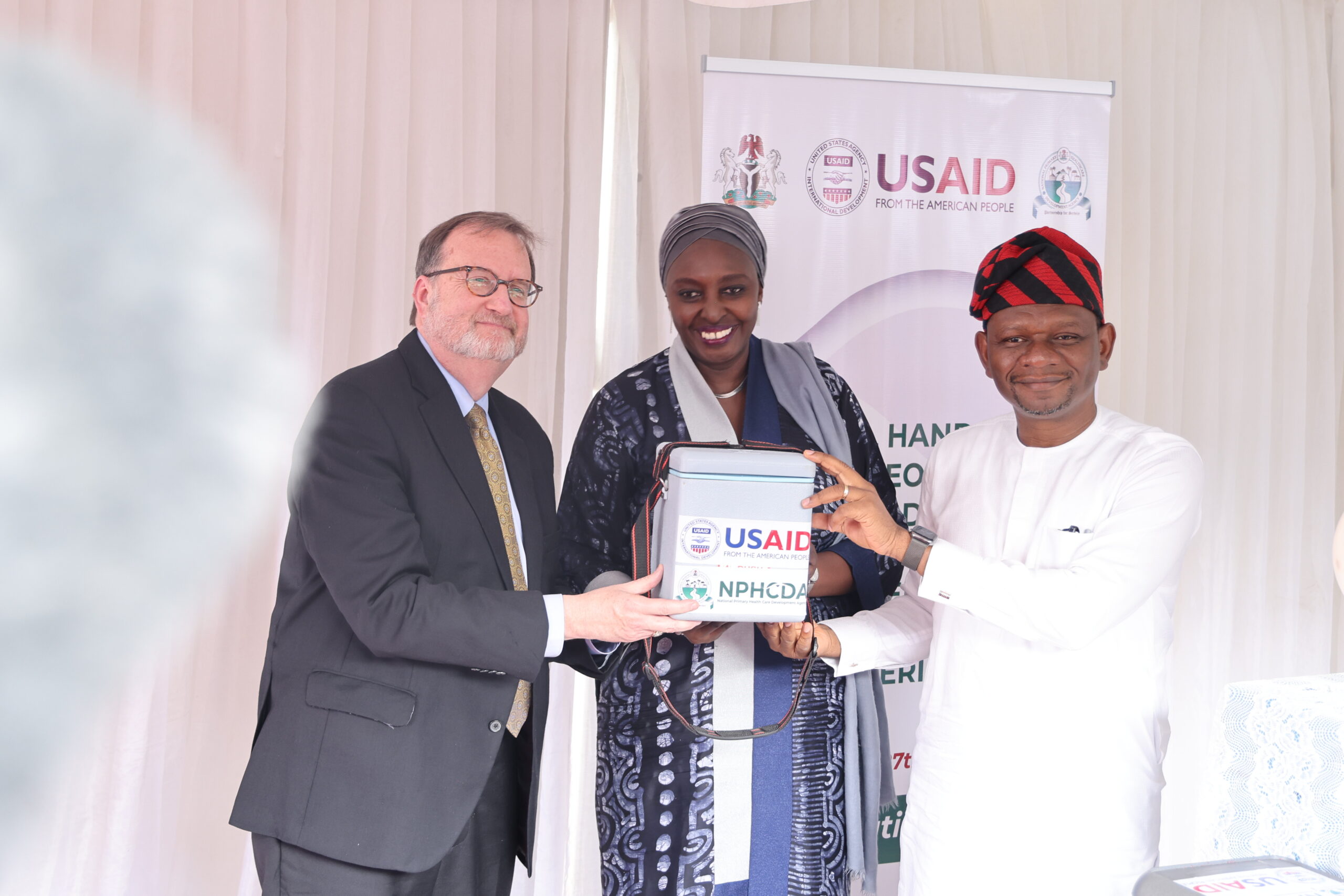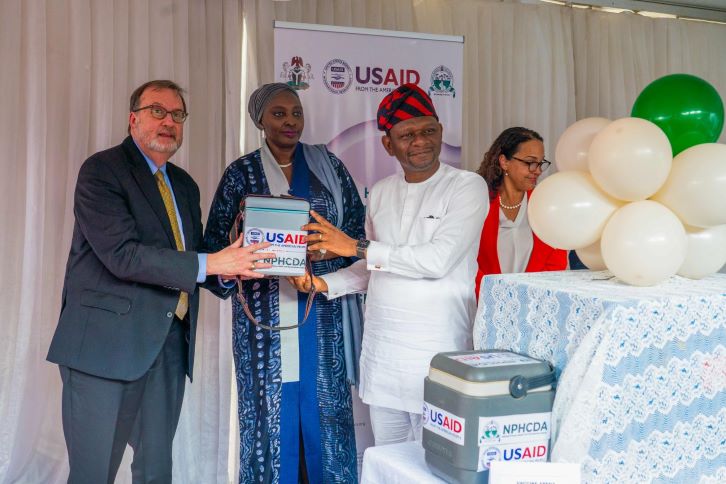
Source: AHT Administrator
Becomes first country in Africa to receive doses

Nigeria has made history as the first African country to receive mpox (monkeypox) vaccines, securing 10,000 doses of the Jynneos (MVA) vaccine from the United States. This move aims to curb the growing outbreak of the viral disease that has affected multiple countries globally.
The vaccine donation was officially handed over in Abuja on Tuesday, June 17, 2025, in a ceremony attended by top government officials and development partners.
The vaccines, produced by Bavarian Nordic, will be administered in a two-dose regimen to 5,000 high-risk individuals, including:
Five states with the highest burden of mpox cases will be prioritized, while reactive vaccination will be extended to other areas as needed.
Coordinating Minister of Health and Social Welfare, Prof. Muhammad Pate, represented by Permanent Secretary Daju Kachollom, praised the U.S. government and global partners like WHO, USAID, PEPFAR, and UNICEF for their continued support:
“This vaccine will be of great help to us… We understand the importance of having a healthy nation.”
He added that Nigeria’s National Agency for Food and Drug Administration and Control (NAFDAC) has granted Emergency Use Authorization for the mpox vaccine.
Dr. Matshidiso Moeti, WHO Regional Director for Africa, emphasized the importance of the delivery:
“This is a crucial addition to efforts to stop mpox and protect health. It’s a clear sign of international solidarity.”
She also highlighted the urgent need for equitable vaccine distribution, especially in Africa, where access remains limited.
Nigeria has battled mpox outbreaks for several years, with a major spike in 2022. According to WHO data as of August 10, 2024:
Across 12 African countries, more than 15,000 suspected cases and 3,500 confirmed cases have been recorded in 2025, with 26 deaths.
Nigeria’s health authorities, with WHO’s support, are ramping up:
WHO is also collaborating with Gavi and UNICEF to establish a donation scheme for countries in need, ensuring that limited vaccines are deployed where they will have the most impact.